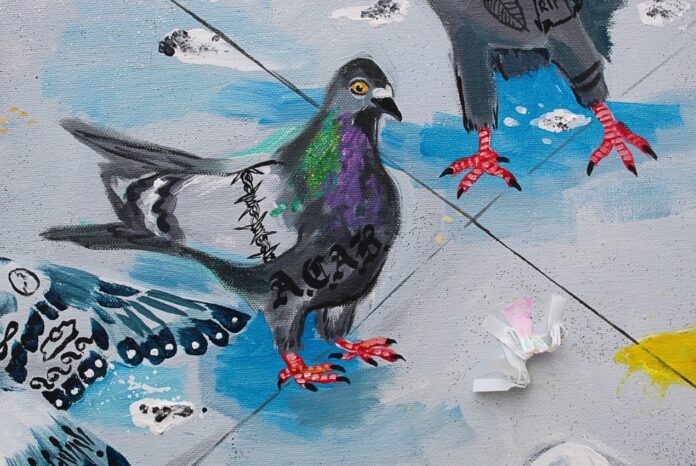Artist Serena Viola Corson doesn’t take life as a creative lightly. In fact, she believes the decision to be an artist comes with great responsibility. She ponders many questions about how to do it justice.
“Am I embodying freedom?” the artist asks in an interview with 48hills. “Am I giving back to the community? Am I being compensated fairly as all other work deserves to be? Am I undervaluing myself? Am I researching enough?”
She is abundantly aware that it is not an easy or stable job. Still, she is driven. Pulled to do it, by what force she isn’t exactly sure.
“I’ve always drawn and painted and when I realized I could be an art major in college, I leapt for it,” Corson says.
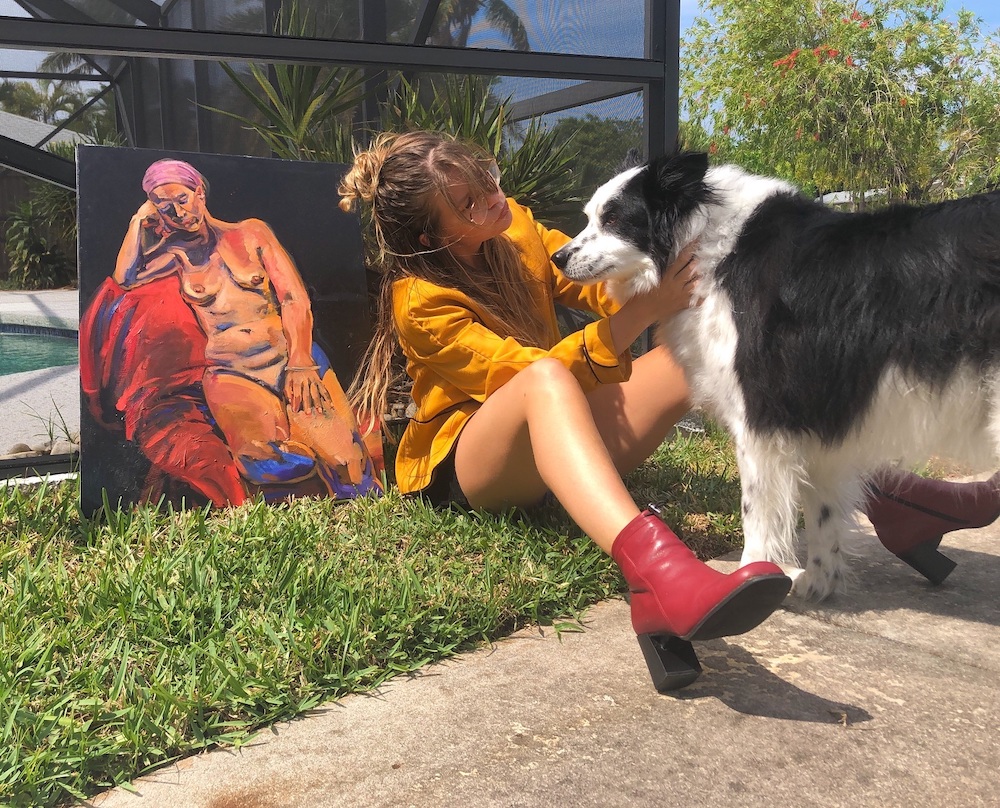
Corson grew up moving all over the southeastern United States with her single mom, in the midst of financial instability and the 2009 recession. They finally settled into Florida’s “Space Coast,” (as is called the area that is home to the Kennedy Space Center and Cape Canaveral Space Force Station) where she spent her adolescence.
The current Haight-Ashbury resident landed in San Francisco by divine providence.
After finishing her BFA at Florida State University, she worked for an artist and managed an art gallery for a year in Tallahassee. Then, she decided to make a change, and moved in with a friend who was living in the forest along the California-Oregon border near Ashland.
“I worked on a cannabis farm briefly and just enjoyed being in the woods, reading and cooking a lot,” Corson says.
She planned to move to New York to be closer to family and immerse herself in the art scene, but first, an opportunity to visit San Francisco arose. Here, she happened to meet a man, fall in love, and change her destiny.
Corson’s roots as a creative soul run deep. Her grandmother was an artist, poet, opera singer, harp player, teacher, and mother. She died when Corson was just two years old, though the artist continues to feel very connected to her grandmother thanks to the hundreds of artworks and dozens of journals she left behind.
“I wish more than anything I could have a conversation with her now, but I am sure she speaks through me,” Corson shares.
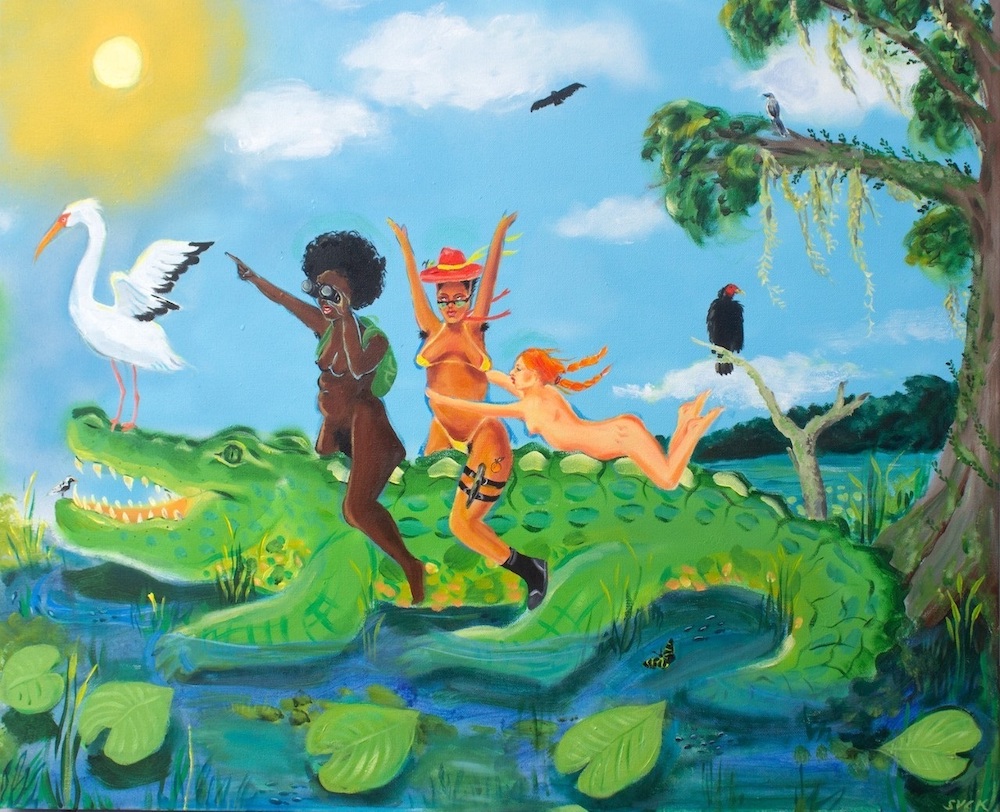
Corson is a lover of life and all beings. She adores walking outdoors, her cat, books, lover, roommate, cooking, writing, reflecting, and talking to people.
“I find poetry and inspiration in most things, the deep sorrow and tragedy and joy that is constantly unfolding,” she elaborates. “Hanging onto the fact that there is mystery and things aren’t actually so black and white and bureaucratic. We’re on a revolving rock in the universe.”
Corson thinks of her art as ritual, gathering, and public manifestation. Engaging in multiple expressive angles—not unlike her grandmother—she explores photography in addition to her painting, content for zines, and interactive performance art. She also has a contract gig designing jigsaw imagery for Goodfit Puzzle Company, whose products are available at the Denver location of arts and entertainment company Meow Wolf.
She has activist tendencies and is founder of a women’s collective called Mystic Moon Mamas. The group prioritizes platonic love, with gatherings that are radical celebrations of pleasure, joy, the erotic, and community connection, per the teachings of Audre Lorde. Coincidentally, after forming the collective, she found out that her grandmother was also in a feminist moon group.
“It’s about prefigurative politics and symbolic defiance of the nuclear family structure,” Corson said.
Being raised by a single mom who struggled with poverty, and experiencing intimate partner violence as a teen, definitely radicalized Corson. It caused her to question how things got to be the way they are, and inspires her to work towards a better future through mutual aid, community-building, and the arts.
Describing herself as “messy, playful, and free,” Corson’s primary medium is acrylic paint on canvas or paper, but she plays with spray paint, pastel, ink, markers, and pencils. A corner of her shared bedroom is where the magic happens, as she is currently unable to afford a separate space to work. Corson hopes one day to have a room of her own, yet she will not be stymied. Spatial limitations aside, she organizes as best she can, warms up, assesses—and when the moment is right, she dives into her work.
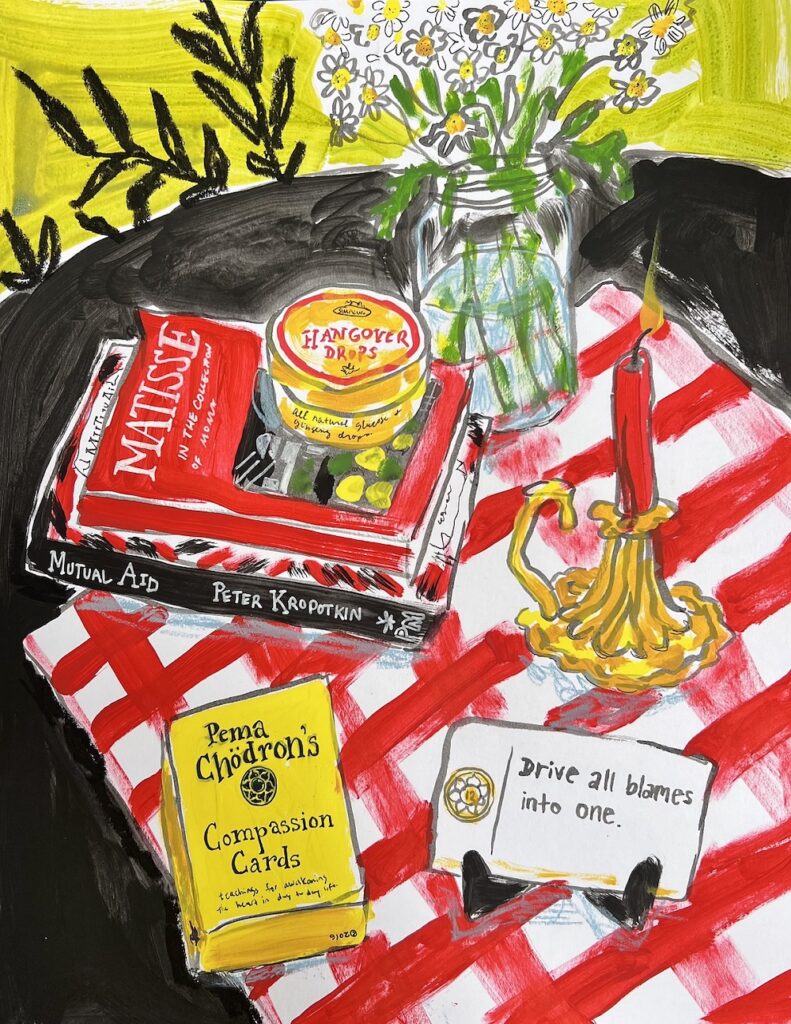
Though her subject matter is varied, Corson’s still-life series really began to pick up during the pandemic, when she was stuck inside and surrounded by personal objects. The paintings, which double as book recommendations to viewers looking closely enough, are inspired very much by the works of Matisse—she even has a poster of his in the background of one of her paintings. Like Matisse, Corson’s still-life works are usually completed alla prima—the “first attempt” approach in which paint is applied wet-on-wet, without allowing previous layers to dry, and completed within a single session.
“Apart from objects, I am also very into painting people—and pigeons,” she says. “Essentially, I’m inspired by my surroundings, my friends and community, and the kinship of human and nonhuman species.”
Paintings like “Manifestations of LUV” and “The Garden of Revolutionary Pleasures” are depictions of friends having fun together, with a message to embody more moments of joy, and a nod to Hieronymus Bosch. Corson says the imagery in some of her work is also a response to our isolationist culture.
A recent larger canvas (36 by 48 inches) brings together a set of found objects commingling on the sidewalk: a pair of heels, some sneakers, loose books, and a few curious pigeons. Corson finds the things she comes across on the streets to be hilarious, but also spiritual messages. Some recent finds incorporated into another new painting include religious handouts, a pamphlet about herbal abortions, and a book titled Queer Werewolves Destroy Capitalism.
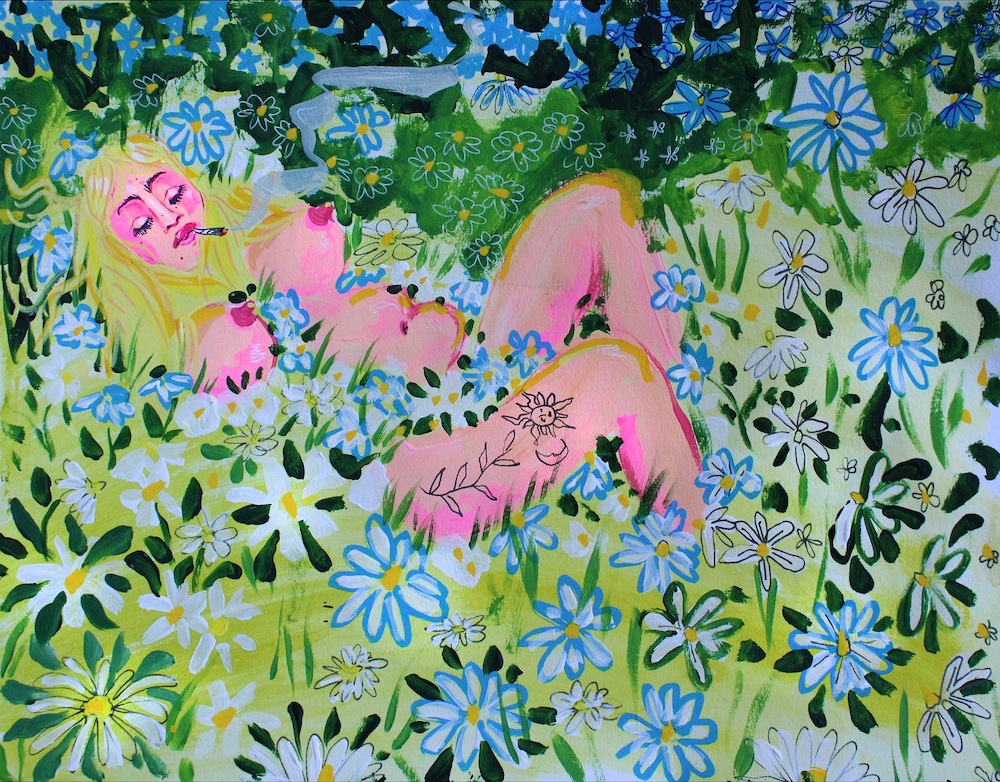
“I’m not kidding,” she said, “I didn’t seek this stuff out, it came to me.”
Corson had a very busy summer. She exhibited three pieces in the juried show, “No Way Out But Through,” at the Berkeley Art Center, for which she won a juror’s award. The show explored how we managed the collective grief of pandemic isolation, made more dreadful with the social injustices that have targeted marginalized communities so egregiously.
As a member-artist at San Francisco Women Artists Gallery on Irving Street, she was part of a group show titled “Being Human—The Figurative Show.” Topping it off, she will exhibit works at Pamplemousse Gallery in Richmond, Virginia, in a show curated by one of her favorite artists, Kevin Sabo. Who says a corner of a bedroom won’t suffice for a thriving artist?
Serena Viola Corson proves that what comes from within will find its way outward onto canvas, no matter the constraints of space. And what does she hope we will experience on the other side of her work? In a word: emotion. In her own emotional orbit, she is focused on building strong relationships, mindfulness, writing, reading, walking, eating. In two words, being human.
For more information, visit her website at serenaviolacorson.com and on Instagram @serenaviolaart.


